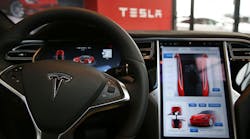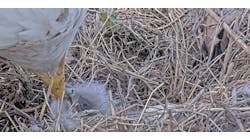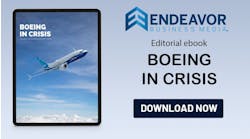Automaker Tesla is one of those companies that everybody loves to talk about because the company has tried to create its own rules in its quest to develop electric, semi-autonomous vehicles. There is a distinct aura of “cool” surrounding the Tesla brand, and with that aura has come an almost-fawning relationship between the popular press at Tesla’s founder, Elon Musk, who seems to delight in having the media follow his every word and his every tweet, no matter how outrageous. It’s certainly helped make Musk a rich man and Tesla a household name (although most households could never hope to afford one of their cars).
Once a company reaches a certain level of status in the marketplace, inevitably people will start analyzing the company to determine its corporate culture. Tesla, like other entrepreneur-led startups that make it big, has more than its share of arrogance, exuding a vibe that suggests its vehicles are so special and culturally significant to the zeitgeist that they don’t have to play by the same rules that other automakers have to play by. That kind of hubris might be excused if the topic is, say, access to government subsidies. It’s definitely not okay, however, if the topic is safety.
In March, the driver of a Tesla Model X was killed when the vehicle—which uses an autonomous driving feature called AutoPilot—crashed into a highway barrier. The promise of self-driving vehicles, of course, isn’t just the convenience but more importantly, the safety. Robot cars don’t fall asleep at the wheel, or text on their cellphones, or get blinded by the sun, or drive while intoxicated. But apparently, they also don’t always slow down when an accident is about to happen. Amazingly, Tesla’s response to the accident was to blame the driver. Their official statement claims, “the only way for this accident to have occurred is if [the driver] was not paying attention to the road.” How’s that for offering up a sacrificial lamb to the cause of technological progress?
The company, which is also developing autonomous trucks, continues to insist that drivers need to stay alert and keep both hands on the wheel, despite being well aware that the entire premise of a robot car is that humans can let the vehicle do the driving. Some pundits have even predicted that in the not-too-distant future, human copilots of autonomous vehicles won’t need a license at all.
It wasn’t Tesla’s tone-deaf blame-game response that got the automaker in trouble with the National Transportation Safety Board, though—it was when the company broke protocol by releasing its conclusions about what caused the accident before the NTSB had the chance to vet and confirm the investigation results. That’s one of those big no-nos that really gets under regulators’ skin, and by jumping the gun, Tesla got its wrist slapped by the NTSB, which revoked the automaker’s party status, a “privilege” granted companies that allows for the sharing of investigative information during the early fact-finding phase of an investigation, with the understanding that early, inconclusive results are not disclosed.
Explaining why Tesla’s party status was revoked, Robert Sumwalt, NTSB’s chairman, said, “Uncoordinated releases of incomplete information do not further transportation safety or serve the public interest.”
Meanwhile, it’s not just the company’s vehicles that aren’t quite as safe as advertised; Tesla’s auto assembly plants themselves have serious safety issues. Last month, the California Division of OSHA opened an investigation into reports that Tesla failed to disclose injuries at its factory in Fremont. Under question is whether Tesla was falsely claiming workplace injuries as personal medical cases. You might recall that a year ago, industry watchdog Worksafe released a report stating that Tesla’s incident rate was 31% higher than the industry average, and the rate of serious injuries was double the industry rate. Again, these kinds of cover-ups (if true) aren’t likely to win Tesla any points with regulators, or with the public at large. And in fact, the National Council for Occupational Safety and Health (National COSH) recently tagged Tesla as one of the "Dirty Dozen" companies who are the worst at putting their workers and communities at risk with unsafe practices.
So a company whose reputation was built on having cool cars that were the safest thing on the road is now having to defend itself against killer robot cars built in dangerous factories. The feel-good story of Tesla’s overnight success doesn’t really feel all that good anymore. Whenever safety takes a back seat to anything else—whether it be profits, productivity or time-to-market demands—nothing good will come of it. If ever there was a company in need of a safety culture intervention, that company is Tesla.
But perhaps the takeaway isn’t just a knowing wink at seeing another high-and-mighty company being brought down a few pegs, but the opportunity to ask of your own organization: Are we doing everything we can to promote a culture of safety here, or are we also suffering from safety cultural rot?



